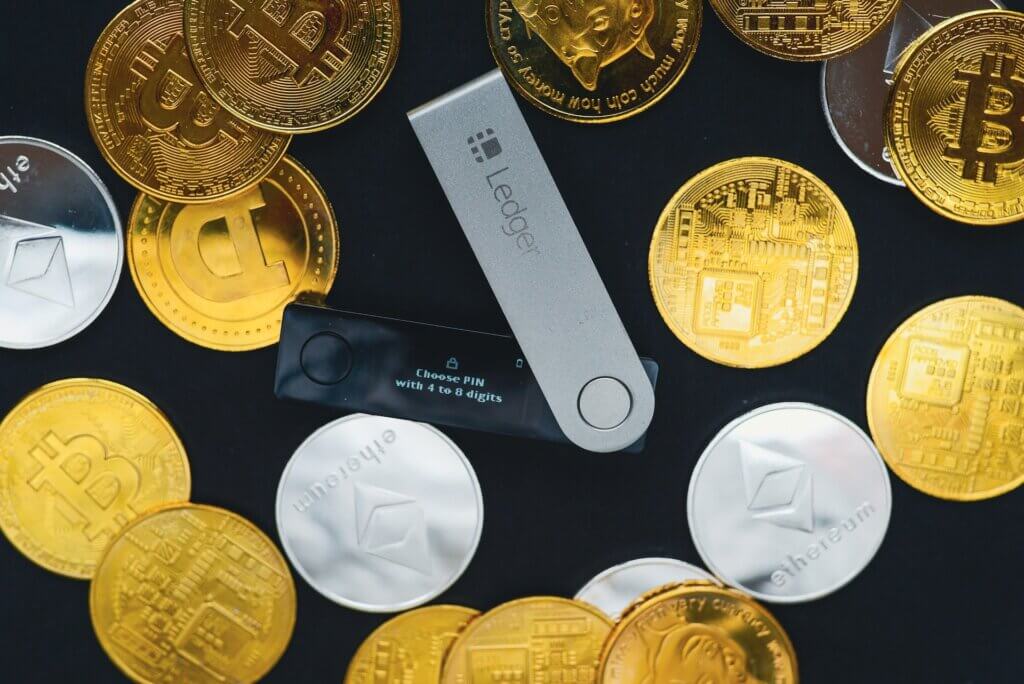Cryptocurrency is a hot topic, but it’s also one that can intimidate for those who are new to investing. Cryptocurrency is the digital currency of the future, but how do you get involved? Should you invest in crypto at all? And if so, which cryptocurrencies should you buy and when?
If these questions sound familiar, don’t worry: we’ve got answers. In this article, we’ll explore what cryptocurrencies are and how they work before diving into the pros and cons of investing in them. We’ll also explain why it’s important to consider factors like your risk tolerance before jumping into any form of investment—even cryptocurrency!
A cryptocurrency is a digital currency that relies on cryptography to process transactions.
A cryptocurrency is a digital currency that relies on cryptography to process transactions. Cryptocurrency is not regulated by a central authority and it’s not back by a physical commodity, such as gold. Instead, cryptocurrencies use blockchain technology to create new coins and verify transactions.
Cryptocurrencies are created through a process called mining—the use of computers to solve complex mathematical problems that help secure the network they operate on (more on this later). This makes it so that only those with specialized hardware can mine for new cryptocurrency, which helps keep control out of the hands of big companies like Facebook or Google who might have an incentive to manipulate markets in their favor if they could control who could access them first.
Cryptocurrencies are also harder to counterfeit than traditional currencies. Because they’re based on blockchain technology, which is a public ledger of every transaction ever made in the currency, it’s nearly impossible to counterfeit new coins or manipulate existing ones. This means that people can trust their money more than they would if it were controlled by a central authority like the US dollar.
Pros of Investing in Cryptocurrency

Cryptocurrency is a hot topic.
It is a new technology, and with that comes excitement.
Cryptocurrency is a new asset class, which means there’s room for growth (and profit!) as the market develops.
Cryptocurrency isn’t regulated by governments or banks—it exists entirely digitally and can be transferred instantly from one person to another anywhere in the world with no fees or restrictions on how much money you can send at once (or where). This makes cryptocurrency borderless, global and fast—no more waiting days for international wires!
Scams?!
There are also some downsides to this lack of regulation: because there aren’t any rules governing how much money you should have before investing in cryptocurrency (or if it’s even okay at all), scammers may try their hardest to get into your wallet through fake apps or websites designed specifically for stealing passwords etcetera; plus, since transactions aren’t reversible once they’re complete, there’s no guarantee that anyone who buys something from you through PayPal won’t just decide not to honor his/her end of bargain later down the road either. Check this article on Forbes about those scams.
However, the biggest downside to cryptocurrency is that it’s still very volatile and can be extremely risky. Because it’s so new, there aren’t any rules governing how much money you should have before investing in cryptocurrency (or if it’s even okay at all), scammers may try their hardest to get into your wallet through fake apps or websites designed specifically for stealing passwords etcetera; plus, since transactions aren’t reversible once they’re complete, there’s no guarantee that anyone who buys something from you through PayPal won’t just decide not to honor his end of the bargain later down the road, either.
Cons of Investing in Cryptocurrency
Cost. The high cost of investing in cryptocurrency is one of the biggest reasons many people don’t want to do it. To get started with buying your first digital coins, you’ll need some money to exchange for Bitcoin or other coins on an online exchange like Coinbase. Depending on how much you invest and which type of coins you choose, this initial investment could be anywhere from $100 all the way up into five figures (or more). If it doesn’t work out as planned—which could happen—it could be devastating financially and emotionally.

As mentioned above, risk for fraud/scams/hacking incidents at exchanges such as Mt Gox where hackers stole $460 million worth of bitcoins from customers’ accounts back in 2014 before shutting down completely two years later due largely because no one trusted them anymore after so many users lost money through their site due either directly or indirectly from these hacks happening over time throughout those two years prior when they were still operating normally until everything fell apart once too many users had been scammed out their funds by hackers exploiting vulnerabilities within their system…
There’s also the risk that your exchange gets hacked, as Mt Gox did in 2014. This can happen even if you have strong passwords, two-factor authentication and other security measures in place—just look at what happened at Coincheck earlier this year, where hackers made off with $530 million worth of NEM coins from Japanese users’ accounts.
Factors to Consider Before Investing in Cryptocurrency
After you’ve done your research and are ready to invest, it’s important to consider the following factors:
How much can I afford to lose? This is probably the most important question you need to ask yourself before investing in anything. If you have a large sum of money that would be difficult or impossible for you to recover if things go south, then cryptocurrency may not be right for your portfolio. It’s always better to invest what feels comfortable instead of risking everything on something that might fail or lose value.
How much should I invest? This will depend on how much risk tolerance (more on this later) as well as investment goals and experience level. A beginner investor may want only put up $100 while an experienced professional might put up thousands or even tens of thousands dollars at once depending upon their risk tolerance level and other factors, such as how long they plan on holding onto their investment.

What is my investment goal? If you just want to make some money, then cryptocurrency may not be a good place to start. While there are definite opportunities for making money with digital currency, it’s important to understand that there is also risk involved. Investing in something speculative like cryptocurrency should only be done if you have the money available and no other plans for it.
If your goal is to make money, then you should look into other investment options, such as stocks and bonds. These are less risky and more stable than cryptocurrency. You’ll also be able to get a better return on your investment.
If your goal is to learn more about cryptocurrencies and blockchain technology, then this may be a great place to start. You can invest in digital currency without having to spend thousands of dollars. This way, you’ll get some hands-on experience with the market without risking too much money.
Even if you believe in the long-term viability of cryptocurrency, there’s no guarantee that your investments will make money.
You could lose all your money.

You should only invest in what you can afford to lose.
Do your own research before investing and don’t buy into the hype! There have been many instances where people have lost their shirts because they got caught up in the euphoria surrounding an emerging technology or market trend—and cryptocurrencies are very much still emerging technologies with plenty of room for growth (or decline). If anything else, diversifying across different cryptocurrencies and exchanges will help protect against this risk: if one exchange goes down or becomes less profitable than others because of bad management decisions or regulatory pressure from governments around the world (which has happened before), then at least some of your funds are still safe elsewhere.
Cryptocurrency is a volatile asset class, so it’s important not to get too attached to any single investment. If you can’t afford to lose your money, then don’t invest in cryptocurrency!
The best way to mitigate these risks is by diversifying across different cryptocurrencies and exchanges.
Conclusion
In short, investing in cryptocurrency is not for the faint of heart. It’s a volatile and unpredictable market that could plummet at any moment—but if you believe in its long-term viability and think it’s worth the risk, then go ahead. Just be careful not to invest more than what you can afford to lose! If not, you maybe can find alternative investment instruments to invest with and work your way out from Ramen Noodle to Caviar.


